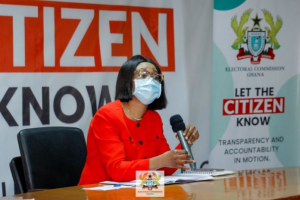The Chief Executive Officer (CEO) of Africa Center for Energy Policy (ACEP), Benjamin Boakye, says there’s nothing wrong with companies in the oil and gas industry flaring gas if there’s no basis and capacity to keep such resources.
He observed that Ghana lacks the capacity to invest in extra plants to process and store excess gas hence the flaring by industry players.
Parts of the country in recent times have been experiencing intermittent power supply, but the Ghana Grid Company (GRIDCo) blamed the power outages on Ghana’s inability to get gas from Nigeria.
The 2022 annual Public Interest Accountability Committee (PIAC) report disclosed that a total of 25.3 billion cubic feet (bcf) of natural gas worth about $169 million was lost in the upstream petroleum sector through flaring.
The report added that the volume of gas flared in 2022 increased by 19.3 per cent compared to a volume of 21.2 bcf recorded in 2021. This constituted about 10 per cent of the total 253.56 bcf of both Associated Gas (AG) and Non-Associated Gas (NAG) produced from the three oil fields of Jubilee, Sankofa Gye-Nyame (SGN) and Tweneboa-Enyenra-Ntomme (TEN).
Speaking on the Citi Breakfast Show hosted by Bernard Avle, Mr. Boakye indicated that the issue of Ghana acquiring plants to process gas at the Jubilee Fields has been on the drawing board for many years.
“If there’s no commercial avenue to use gas, you cannot compel them not to flare gas for operational reasons. If there are no commercial applications for the market, they have to flare the gas. We need investment to unlock the gas, once you produce it, you need to process it. We don’t have enough capacity to construct another processing plant. We will need to build a new site to store the additional gas from TEIN and Jubilee Fields”.
“…Once we have the capacity challenge, then we need to flare. That is why we are where we are, we are flaring the gas, and we are looking for liquid fuel,” he said.
He charged the government to diversify fuel sources by implementing policies that will help the country to have processing plants in order to get excess gas for other purposes.
“I always say we are getting the policy action wrong, that is why we are where we are. If we have ENI producing in a more constant way, you could discuss with investors to help you pump in more gas by setting up a new processing plant. We have to think politically along the value change…we haven’t done the policy right,” he suggested.







